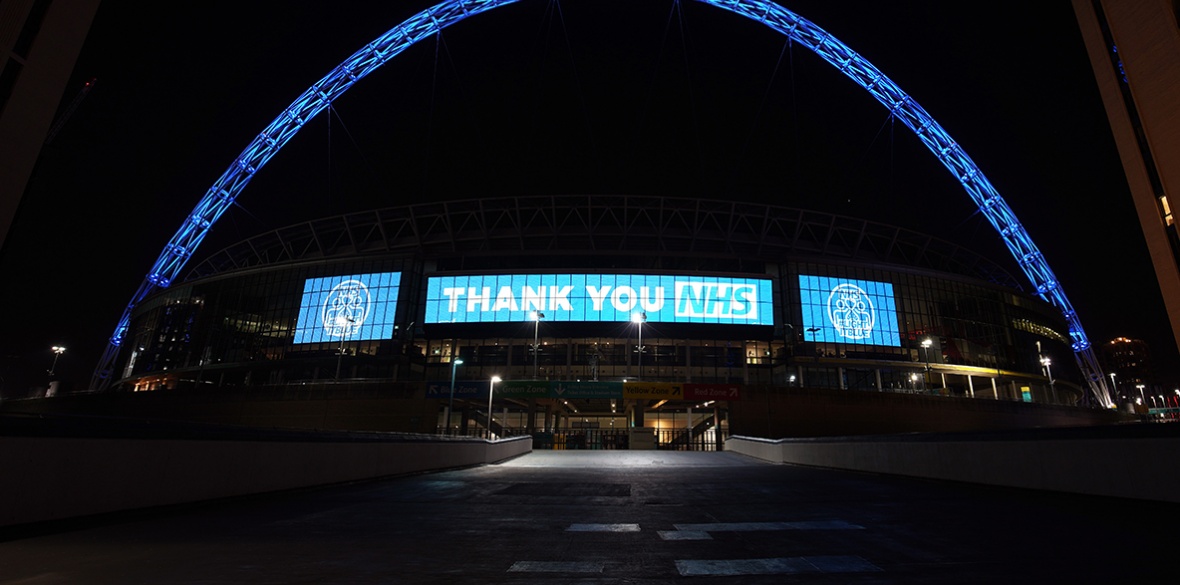This is the last article you can read this month
You can read more article this month
You can read more articles this month
Sorry your limit is up for this month
Reset on:
Please help support the Morning Star by subscribing here
IT’S not often that I agree with Karren Brady, Sun columnist, Tory Peer and West Ham’s vice-chair, but when she argued the best option for football was to null and void the 2019-20 football season I thought she was at least being honest about the urgency and scale of what football is facing.
I prefer the term “incomplete,” the season ends now, forget about any resumption, the league places frozen in time, no champions, no Champions League places, no relegations, no promotions.
Of course some fans accused her of naked self-interest. West Ham currently hover above the drop zone only on goal difference. But the point is such a cessation, forever, of this one season will produce good results for some bad results for others, Liverpool and Leeds especially, that’s the point of being “all in it together.”
As for games played behind closed doors, the great Celtic manager Jock Stein once said: “Football without fans is nothing.” He was right.
Immediate incompletion would have revealed the sheer abnormality of the times we are living – or, for far too many dying –through. A welcome self-sacrifice as football faced up to its responsibilities.
But no, the desire to get back, fuelled mainly by the huge commercial merry-go-round, driven more than anything else by the deals with billions of pounds worth of broadcasting deals that funds football’s largesse at the upper end, meant the season must not be allowed to stop for any longer than could possibly be got away with.
Incompletion would need to be Europe-wide, incomplete seasons would mean no Champions League, this season, and none next either. An 18-month break for the competition, is that really too much of a sacrifice to ask as Europe struggles to get back to some kind of normality?
Apparently, yes as the wealthiest clubs scramble to find a way to keep Uefa’s money-spinning show on the road.
And the international game isn’t much better. In a rushed decision Euro 2020 becomes Euro 2021, the awkward fact that this was the year designated for the Women’s Euros solved by bumping that into the following year. What does this produce?
The most almighty of global fixture pile-ups. The world sporting calendar is delicately balanced between providing a summer of sport to look forward to and forgetting that sometimes, even with sport, less is more.
The women’s Euros in 2022 means England hosting both these and the Commonwealth Games at the same time, madness, both will lose out big time.
And there’s another reason why 2021 would be a tournament free summer for the men’s game. To give the players, and the fans, a summer off before World Cup 2022.
Null and void would have meant Euro 2020 becomes Euro 2024, the existing hosts move along to the next time, a four-year wait not much in the grander scheme of the current global crisis and provides the time for the event organisation to recover.
That recovery to be worthwhile necessitates change. The obscenity of clubs laying off non-playing staff to claim state aid when the average wage of a Premiership footballer is £60,000 a week. Chairmen, directors, owners taking wealth out of their clubs of even greater magnitude.
Clubs lower down the leagues, non-league, the recreational game facing extinction. When the wealth at the top-end is so huge to be almost unimaginable the cost of self-sacrifice and solidarity required border on the negligible, but to date have proved too much for too many.
The very welcome exceptions to this sorry tale, from executive boxes and boardrooms given over for temporary conversion into clinics and wards by local hospitals to clubs and players keeping the foodbanks going that depend on matchday collections, are to be applauded.
There is, of course, a community around every club that amounts to more than just gate receipts and replica shirts sold. Maybe, just maybe, the crisis will force a greater recognition of this, that the Fans Supporting Foodbanks stalls outside Anfield, Goodison and numerous other grounds become every bit a part of what football is about as anything else.
Football has an extraordinary ability to spark a conversation. But it cannot effect social change on its own.
What it does is get its audience thinking in a way that political parties, protest movements, books and newspaper articles often can’t. This crisis has served to reveal NHS staff, care workers, refuse collectors, shop assistants, cleaners, posties as just some of those whose public service the rest of us depend on, and right now for plenty, to live.
This demands that financial reward, while it isn’t everything, is at least a start in providing a recognition of the centrality of these workers to our society. They might not have the ability to dribble past three defenders, feint one way to send the goalie the wrong way, and put a screamer in the top-left corner of the net, but they do have something different to contribute and that deserves our support too.
When the next season comes around lets not only celebrate that, as surely lots of clubs will do, but also ensure these public services and their workers aren’t a charity case, instead invested in, valued, rewarded as part and parcel of the society that depends on them.
Mark Perryman is co-founder of the self-styled “sporting outfitters of intellectual distinction,” aka Philosophy Football












